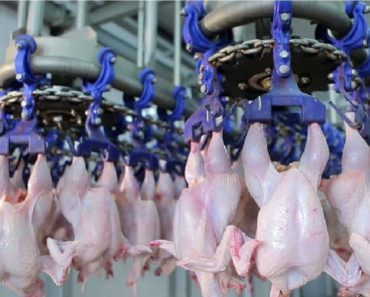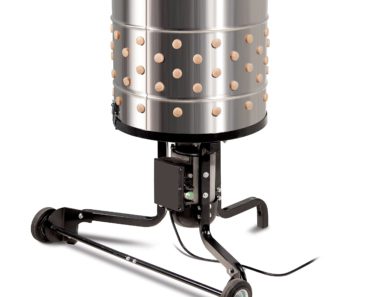Contents
- 1 The Ultimate Guide: Crafting Probiotics for Optimal Chicken Health
- 2 Benefits of Probiotics for Chickens
- 3 Types of Probiotics for Chickens
- 4 Methods of Administering Probiotics to Chickens
- 5 FAQ
- 5.1 What are the most effective methods for making probiotics for chickens and promoting a healthy gut microbiome?
- 5.2 Are there any specific ingredients or supplements that should be included in homemade probiotics for chickens?
- 5.3 Can you provide step-by-step instructions on how to make homemade probiotics for chickens, including fermentation processes and recommended storage methods?
- 5.4 Related Posts

We’re going to dive into the fascinating world of probiotics for chickens. Join us as we explore the benefits of incorporating probiotics into your flock’s diet and discover simple yet effective ways to make your own natural probiotic supplements. Get ready to give your chickens a boost of good bacteria for optimal health and well-being!
The Ultimate Guide: Crafting Probiotics for Optimal Chicken Health
Probiotics play a crucial role in maintaining the overall health and well-being of chickens. These beneficial bacteria are essential for ensuring optimal digestion, nutrient absorption, and immune function in poultry. In this comprehensive guide, we will explore the importance of probiotics and provide you with practical tips on how to craft probiotics for your chickens.
Understanding Probiotics
Probiotics are live microorganisms that, when administered in adequate amounts, confer health benefits on the host. In the case of chickens, probiotics mainly consist of various strains of beneficial bacteria such as Lactobacillus and Bifidobacterium. These bacteria help maintain a healthy gut flora, which is vital for chicken immunity and overall health.
The Benefits of Probiotics for Chickens
Adding probiotics to your chicken’s diet can yield several benefits. Firstly, probiotics enhance digestion and nutrient absorption, leading to improved feed conversion and weight gain. Secondly, probiotics inhibit the growth of harmful bacteria in the gut, reducing the risk of infections. Thirdly, these beneficial bacteria stimulate the immune system, helping chickens ward off diseases more effectively.
Crafting Probiotics for Your Chickens
To ensure optimal chicken health, it is crucial to select the right probiotics and administer them correctly. When choosing a probiotic supplement, look for products specifically formulated for poultry. These supplements usually contain a blend of beneficial bacterial strains and other additives that support gut health.
To administer probiotics, there are several methods you can choose from. One common approach is to mix the probiotic supplement with the chicken’s feed. Another method is to dissolve the probiotics in drinking water, ensuring that each chicken ingests an adequate amount. Additionally, some farmers prefer to use probiotic-rich fermented feed or yogurt as a natural way to introduce probiotics to their chickens.
Monitoring and Evaluating Probiotic Effectiveness
Regular monitoring is essential to evaluate the effectiveness of the probiotic regimen. Keep an eye on your chickens’ overall health, growth rate, and fecal consistency. If you notice any improvements or positive changes, it is a good indication that the probiotics are working well. However, if there are no noticeable effects or if the chickens’ health deteriorates, consider adjusting the probiotic dosage or switching to a different product.
Crafting probiotics for optimal chicken health is crucial for poultry farmers. Understanding the benefits of probiotics and implementing the right administration methods can significantly improve chicken digestion, immune function, and overall well-being. By prioritizing the gut health of your chickens, you can ensure a thriving flock and contribute to sustainable poultry production.
Benefits of Probiotics for Chickens
Chickens can greatly benefit from the addition of probiotics to their diet. Probiotics are beneficial bacteria that help improve digestion and boost the immune system. Here are some key benefits of probiotics for chickens:
1. Improved Digestion: Probiotics aid in breaking down food, improving nutrient absorption, and enhancing digestion in chickens. This can result in better overall health, increased weight gain, and improved feed conversion ratios.
2. Enhanced Immune System: Probiotics help stimulate the chicken’s immune system, making them more resistant to common diseases and infections. By maintaining a healthy balance of good bacteria in the gut, probiotics can reduce the risk of bacterial and fungal infections in chickens.
3. Reduced Stress: Chickens often experience stress due to various factors such as environmental changes, transportation, or flock integration. Probiotics can help alleviate stress by promoting a healthy gut microbiota, which is closely linked to the chicken’s overall well-being and ability to cope with stressors.
Types of Probiotics for Chickens

Not all probiotics are created equal, and it’s important to choose the right ones for your chickens. Here are some common types of probiotics used for chickens:
1. Lactobacillus: Lactobacillus is a genus of bacteria that is commonly found in the gut of chickens. It helps promote gut health, enhance nutrient absorption, and prevent the overgrowth of harmful bacteria.
2. Bacillus: Bacillus strains are spore-forming bacteria that can survive harsh conditions and remain stable during feed processing. They are known for their ability to improve digestion, enhance nutrient utilization, and support a healthy immune system in chickens.
3. Saccharomyces cerevisiae: This yeast-based probiotic is often used in poultry diets to improve gut health, increase nutrient availability, and enhance the bird’s overall performance. It also helps prevent the colonization of harmful pathogens in the chicken’s gut.
Methods of Administering Probiotics to Chickens
There are several ways to administer probiotics to chickens to ensure maximum effectiveness:
1. Feed Additives: Probiotics can be added to the chicken’s feed in the form of prebiotic or probiotic additives. These additives are specially formulated to provide a consistent dosage of beneficial bacteria to support gut health and overall well-being.
2. Water Administration: Probiotics can also be administered through the chicken’s drinking water. This method ensures that all birds in the flock receive the necessary dose of probiotics and is particularly useful for large-scale operations.
3. Direct Application: Some probiotics can be directly applied to the chicken’s beak or added to their daily ration. This method is commonly used for young chicks or birds that require targeted probiotic supplementation.
Remember, it’s always important to follow the manufacturer’s instructions and consult with a veterinarian or poultry nutritionist when incorporating probiotics into your chicken’s diet.
FAQ
What are the most effective methods for making probiotics for chickens and promoting a healthy gut microbiome?
Probiotics for chickens play a crucial role in promoting a healthy gut microbiome. Here are some effective methods to make and administer probiotics to chickens:
1. Using fermented feed: Fermenting chicken feed, such as grains or pellets, can increase probiotic content. This process involves soaking the feed in water and allowing it to ferment for a few days before feeding it to the chickens.
2. Providing yogurt or kefir: Yogurt or kefir is rich in beneficial bacteria like Lactobacillus and Bifidobacterium. Adding small amounts of plain yogurt or kefir to the chickens’ diet can help establish a healthy gut microbiome.
3. Using commercial probiotic supplements: There are various commercially available probiotic supplements specifically formulated for poultry. These supplements typically contain a blend of beneficial bacterial strains and can be added to the chickens’ water or feed.
4. Feeding prebiotic-rich foods: Prebiotics are non-digestible fibers that promote the growth of beneficial bacteria. Including prebiotic-rich foods like oats, barley, or flaxseeds in the chickens’ diet can support the proliferation of probiotics in their gut.
5. Allowing access to outdoor areas: Allowing chickens to forage outdoors can expose them to a diverse range of beneficial microorganisms present in soil, plants, and insects. This exposure can enhance the natural colonization of probiotics in their gut.
Remember to follow recommended dosage guidelines when administering probiotics to chickens. It’s also essential to observe proper hygiene practices to prevent contamination and maintain the efficacy of probiotics. Consulting with a poultry nutritionist or veterinarian can provide tailored recommendations for your specific flock.
Are there any specific ingredients or supplements that should be included in homemade probiotics for chickens?
When making homemade probiotics for chickens, it is important to include ingredients that are rich in beneficial bacteria and promote a healthy gut flora. Some common ingredients that can be included are:
1. Yogurt: Yogurt contains live cultures of lactobacillus bacteria, which are beneficial for the chicken’s digestive system. Include plain, unsweetened yogurt in the homemade probiotics.
2. Apple cider vinegar: Apple cider vinegar is known for its potential probiotic properties. Add a small amount of apple cider vinegar to the homemade probiotics.
3. Fermented foods: Including fermented foods like sauerkraut or kimchi in the chicken’s diet can provide additional probiotics. Include small amounts of fermented foods in the homemade probiotics.
4. Probiotic supplements: Probiotic supplements designed specifically for chickens can also be added to homemade probiotics. These supplements usually contain a blend of beneficial bacteria strains. Follow the recommended dosage on the supplement label when adding it to the homemade probiotics.
Remember to introduce probiotics gradually into the chicken’s diet and monitor their response. It is also important to maintain proper hygiene practices when preparing homemade probiotics to avoid contamination.
Can you provide step-by-step instructions on how to make homemade probiotics for chickens, including fermentation processes and recommended storage methods?
Step-by-step instructions on how to make homemade probiotics for chickens:
1. Start by gathering the ingredients. You will need organic raw apple cider vinegar (with the mother), water, and a sugar source like molasses or raw honey.
2. Mix 1 part apple cider vinegar with 20 parts water in a clean container. For example, if you use 1 cup of vinegar, add 20 cups of water.
3. Dissolve 1-2 tablespoons of sugar into the mixture to provide a food source for the beneficial bacteria.
4. Cover the container with a breathable cloth or coffee filter secured with a rubber band. This will allow air circulation while keeping out contaminants.
5. Place the container in a warm and dark location, ideally around 70-75°F (21-24°C). Avoid direct sunlight as it can kill the beneficial bacteria.
6. Allow the mixture to ferment for 1-2 weeks. During this time, beneficial bacteria will multiply, creating a probiotic-rich solution.
7. After the fermentation period, strain the liquid through a fine mesh sieve or cheesecloth to remove any sediments or solids. This will ensure a clean and clear probiotic solution.
8. Transfer the homemade probiotic solution to clean, airtight bottles or jars for storage. Keep them in a cool and dark place, such as a refrigerator, to slow down the fermentation process and maintain the potency of the probiotics.
Recommended storage and usage:
– It is best to use homemade probiotics for chickens within 6 months of preparation to ensure freshness and efficacy.
– Store the probiotics in a cool and dark place, preferably in the refrigerator, to extend their shelf life.
– Shake the bottle gently before each use to distribute any settled bacteria.
– Add around 1-2 tablespoons of probiotics per gallon of drinking water for your chickens. This can be done daily or a few times a week, depending on your flock’s needs.
– Observe your chickens’ health and adjust the dosage accordingly. If any adverse reactions occur, discontinue use and consult with a veterinarian.
Remember, homemade probiotics are not a substitute for proper nutrition and veterinary care. They can complement a balanced diet and support the overall health of your chickens.
Incorporating probiotics into the diet of chickens can greatly enhance their overall health and productivity. With the step-by-step guide outlined in this article, chicken owners can easily make their own homemade probiotics to promote a balanced gut microbiome in their flock. By providing beneficial bacteria, such as Lactobacillus and Bifidobacterium, chickens can experience improved digestion, nutrient absorption, and disease resistance. Additionally, probiotics can help alleviate stress, boost immunity, and reduce the need for antibiotics. Embracing the power of probiotics in chicken care is a sustainable and natural approach that benefits both the birds and the environment. So, why not give it a try and see the positive impact it can have on your feathered friends? Happy probiotic-making and here’s to healthier, happier chickens!





